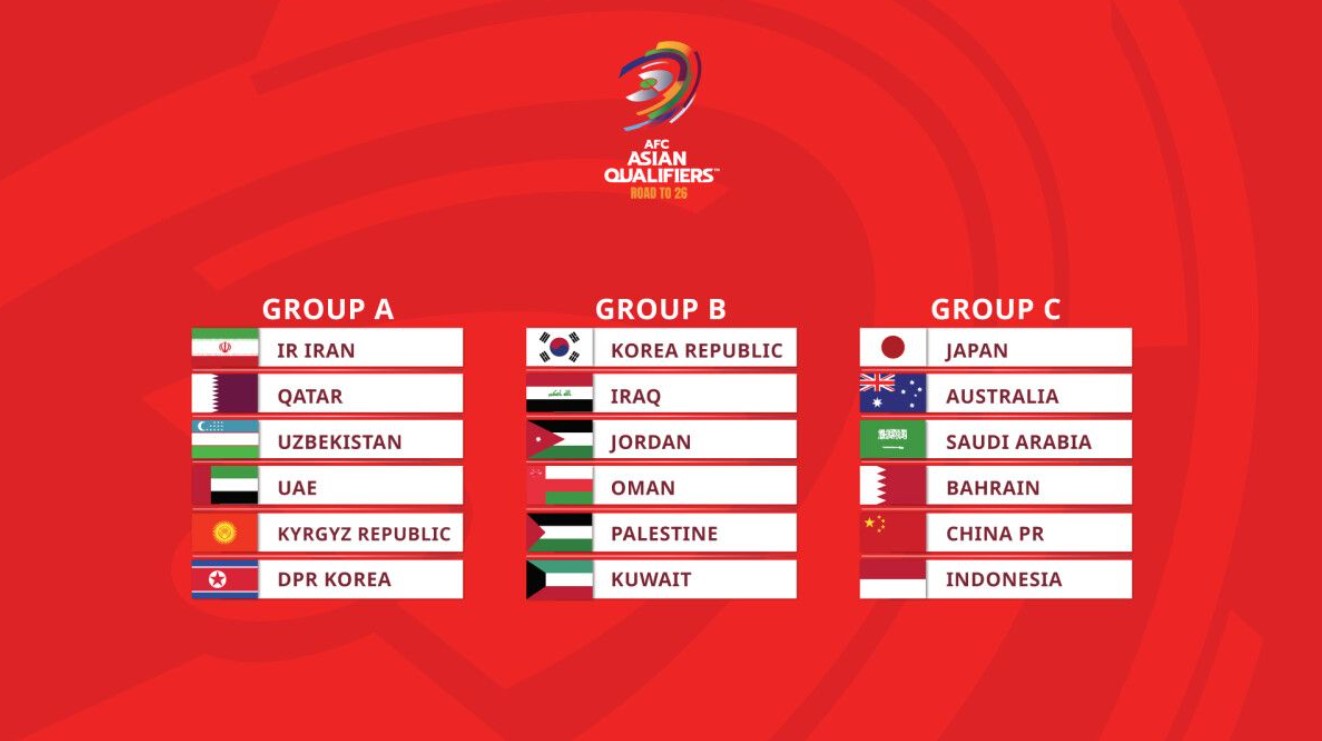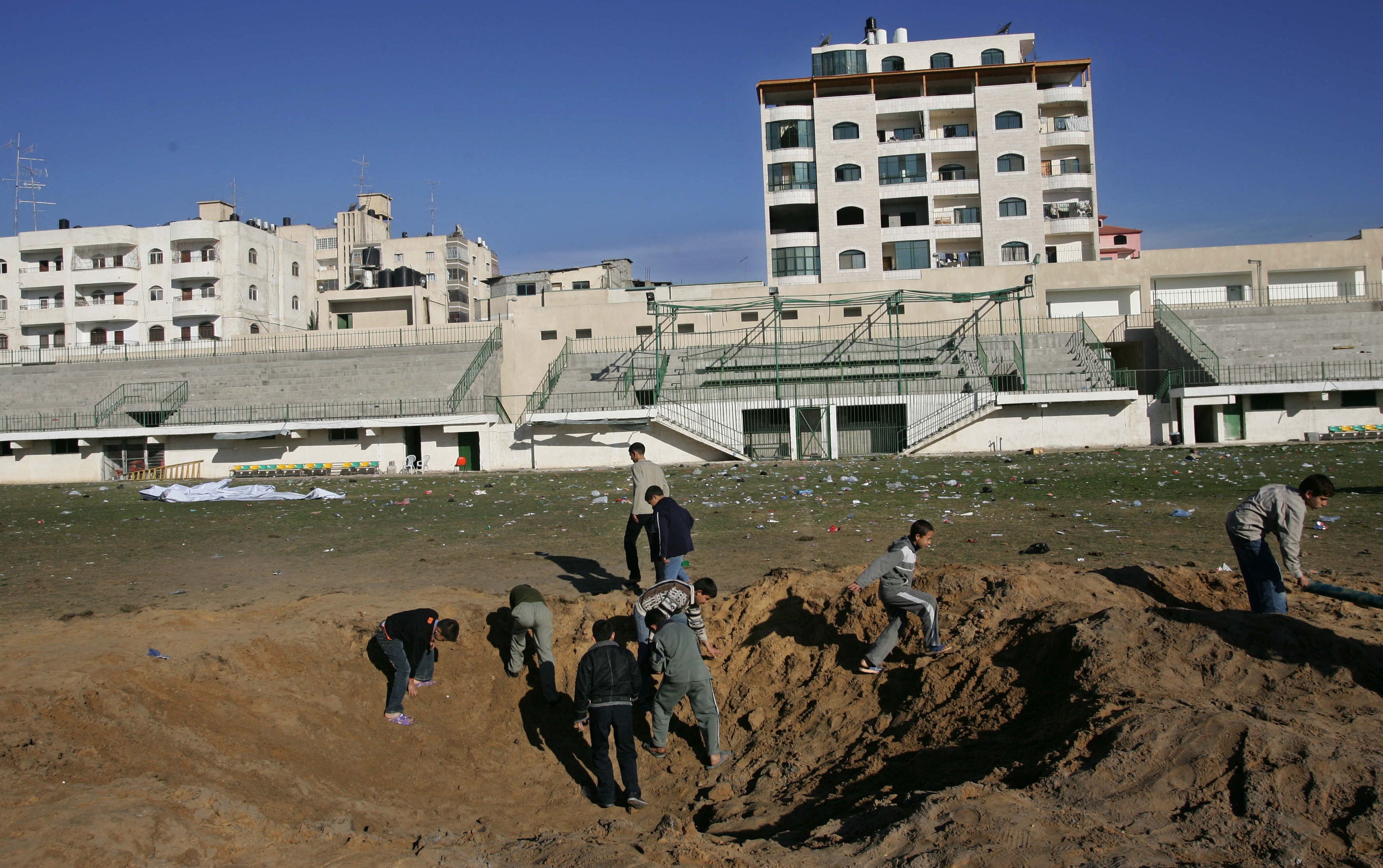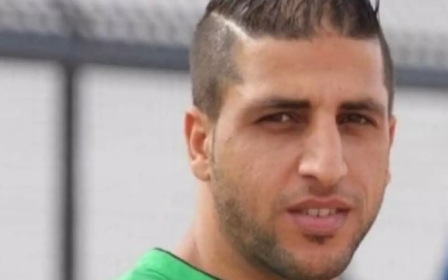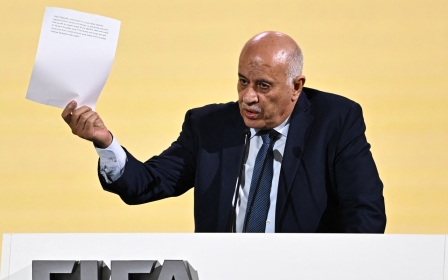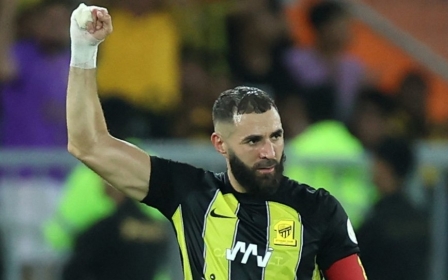How Palestine could qualify for the 2026 World Cup
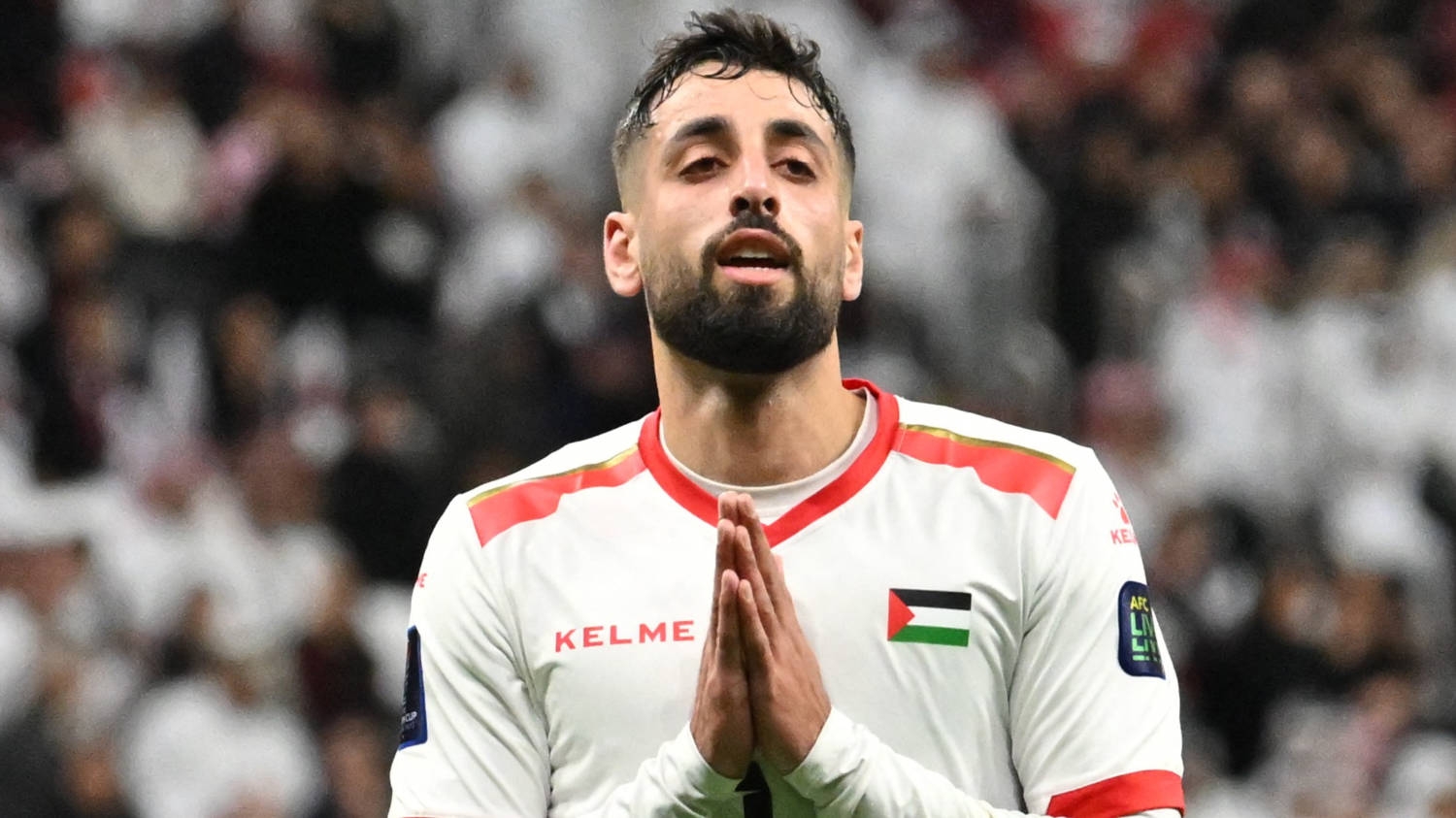
Palestine’s national football team have got through to the third round of qualification for the 2026 World Cup.
Like other teams, they are faced with a complex system of group stages and playoffs as they bid to be among the finalists at the next edition of the expanded tournament in the US, Canada and Mexico in 2026.
Unlike other teams, they are competing against the backdrop of war in Gaza, in which football players have been among tens of thousands killed by Israeli forces.
The 2026 World Cup - called United 2026 - is set to be the biggest ever, contested by 48 teams, compared with 32 at the last tournament in Qatar in 2022.
The number of qualifying places for Asian teams has doubled from four to eight, offering outsiders such as Palestine their best ever chance of reaching the finals.
New MEE newsletter: Jerusalem Dispatch
Sign up to get the latest insights and analysis on Israel-Palestine, alongside Turkey Unpacked and other MEE newsletters
Following Thursday’s draw at the Asian Football Confederation's headquarters in Kuala Lumpur, Malaysia, Middle East Eye examines Palestine’s footballing history and considers its possible routes to a first appearance at the finals.
Palestine at the World Cup: How it could happen
International recognition for a Palestinian national team has itself been a decades-long journey.
The first Palestine Football Association, the PFA, was founded during the British Mandate period in 1928 by members of the Zionist movement and largely excluded Palestinian players. In 1948, following the founding of the state of Israel, this organisation renamed itself the Israel Football Association.
Attempts to gain international status for a Palestinian national team were continually rejected until the mid-1990s, when the Oslo Accords established a framework for the broader recognition of the state of Palestine.
In 1998, Palestine was accepted as a member by Fifa, world football’s governing body, by a unanimous vote in which even Israel voted for its membership.
Football, with its twin emphases on national pride and international acceptance, emerged as a key symbol of the project of Palestinian statehood.
Palestine played in their first major international tournament at the Asian Cup in 2015. The team lost all their games but a first tournament goal in a 5-1 defeat to Jordan provided a moment of symbolic consolation.
Since then, the team has improved, with 12 consecutive victories lifting Palestine to an all-time high of 73rd in Fifa's world rankings in 2018.
In January 2024, Palestine competed again at the Asian Cup - their third consecutive qualification for the tournament.
The team progressed past the group stages for the first time after a 3-0 victory against Hong Kong and a draw with the United Arab Emirates. But the team lost in the round of 16 against Qatar, the tournament’s hosts and eventual winners.
But World Cup qualification – the benchmark achievement for a fledgling international team – still eludes them.
How have Palestine performed in the World Cup qualifiers so far?
Palestine’s current world ranking – 96th – was good enough to allow them to skip the first round of Asian qualifying.
In the second round, played in November and June, Palestine secured two victories against Bangladesh, and two draws against Lebanon, despite losing heavily twice against Australia.
Those results were good enough for Palestine to finish second in their group and progress to the third round of qualifying for the first time in the team’s history.
How could Palestine get to the World Cup finals?
While Palestine have already gone further in World Cup qualifying rounds than ever before, a long and complicated route to the competition could still lie ahead.
Reaching the third round of qualifying puts Palestine among 18 Asian teams competing for eight places. Thursday's draw divided these teams into three groups of six, with the top two teams in each group qualifying for the World Cup.
Palestine were drawn in group B, along with Asian giants South Korea and four teams also from the Middle East: Jordan, Iraq, Oman, and Kuwait.
Palestine play their first match of the group away at South Korea on Thursday 5 September.
South Korea will be heavy favourites to claim one of the qualifying spots, having qualified for every World Cup finals since 1986.
After this, they will face neighbours Jordan on Tuesday 10 September.
Other Middle Eastern sides - Qatar, Iran, Saudi Arabia, UAE and Bahrain - also remain in the mix, but were placed in different groups.
For teams that finish third or fourth in their groups, there is another chance to qualify. These six teams will be divided into two groups of three with the winners of each group also qualifying for the finals.
Even then, there is one final route to the finals for Palestine.
The runners-up in the two fourth-round groups will play each other in a two-legged playoff with the winners advancing to an inter-confederation play-off round. They will join five other teams from the confederations of Africa, South America, North America and the Caribbean, and Oceania.
The four lowest-ranked teams among these final six will then play further matches to determine which of them will face the two highest-ranked teams in two playoff finals for the final two World Cup places.
This round is branded as the Fifa Play-Off Tournament. Fifa has yet to confirm when or where the tournament will take place.
Where does the Palestinian team play its matches?
Playing games at home has long posed a challenge for Palestine because of Israel's occupation of the West Bank and Gaza, and since the start of the latest war in Gaza, the team has been forced to travel abroad once again.
Palestine’s most recent “home” World Cup matches in November 2023 and June 2024 have been played in politically friendly neutral locations: Kuwait and Qatar.
Palestine’s official home ground is the 10,000-seat Palestine Stadium in Gaza. But this was bombed by Israel in 2006 and 2012, leading Fifa to fund repairs. The stadium reopened in 2021 but has suffered further destruction since October.
Previously, Palestine has also played home matches at the 12,500-capacity Faisal Al-Husseini International Stadium in Al-Ram in the West Bank, which hosted the team's first Fifa-administered home match versus Jordan in 2008.
But logistical and security issues caused by Israel's occupation has meant that just a handful of international games have been played there - the last of which was in 2019.
What other issues does the Palestinian team face?
Besides not being able to host games, the blockade has also presented challenges to getting Palestinian players out of both Gaza and the West Bank.
In 2007, a World Cup qualifier in Singapore was cancelled because of Israel’s denial of exit visas to several Palestinian players. Despite protests, the game was not rescheduled, meaning Palestine couldn’t qualify for the competition.
Palestine pulled out of the Merdeka Cup, a mini-tournament of international friendlies scheduled for last October in Malaysia: again, not enough players could make it there.
Playing with or against Israeli players remains a highly sensitive issue. In 2005, the Palestinian Authority sanctioned five players for playing in a Palestinian-Israeli “peace team” in an exhibition match in Spain attended by Shimon Peres.
A decade later, Sepp Blatter, then still Fifa's president, met with Benjamin Netanyahu and Mahmoud Abbas with the goal of scheduling an Israel vs Palestine “peace match”. This never materialised: both sides were cautious of football’s capacity to present a visage of peace that neither was satisfied with.
Who are Palestine’s players to watch?
Oday Dabbagh made history in 2021 when he transferred to Belgium Pro League club Royal Charleroi, making him the first player from the West Bank to play in an elite European league. At 25, the forward is the team’s all-time top scorer, and recently scored a hat trick in Palestine’s 5-0 victory over Bangladesh.
Goalkeeper Rami Hamadeh has been a fixture between the posts for over a decade and is a four-time winner of the West Bank Premier League with Jabal al-Mukaber.
Camilo Saldana, a recruit from the large Palestinian diaspora in Chile, is an experienced left-back who won the Copa Chile in 2018 with Palestino, a Chilean-Palestinian team based in Santiago.
Middle East Eye delivers independent and unrivalled coverage and analysis of the Middle East, North Africa and beyond. To learn more about republishing this content and the associated fees, please fill out this form. More about MEE can be found here.


